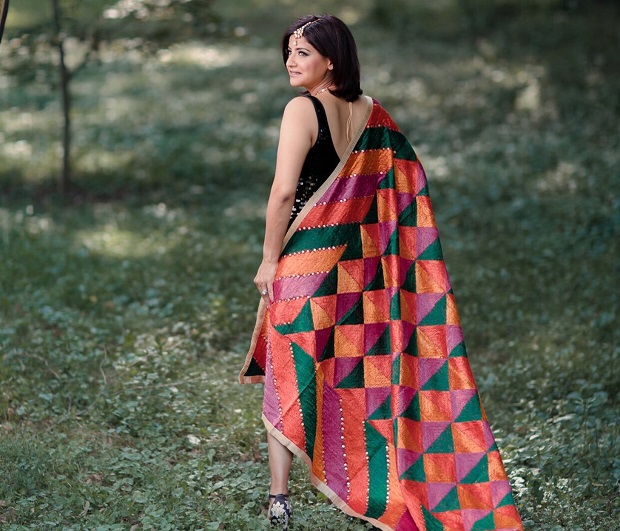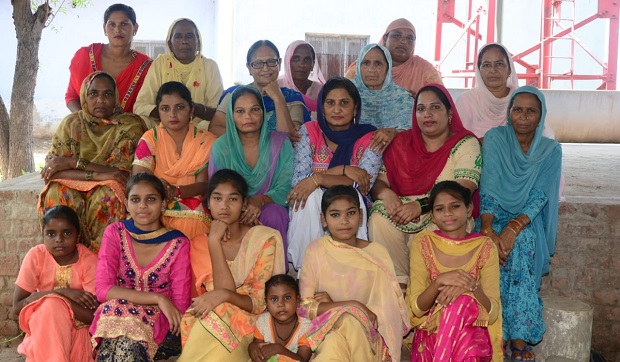* – This article has been archived and is no longer updated by our editorial team –
Below is our recent interview with Nivi Jaswal, CEO at Virsā:
Q: Could you provide our readers with a brief introduction to Virsā?
A: Virsā is foremost a social movement. Currently, represented by two enterprises – It has “empowerment-led thinking” embedded at every level – the way we engage with our Artisan community to the way we engage with our customers & consumers, and most importantly – the partners we choose to work with (and not), who we fundraise with (and not) etc. Virsā means Heritage in Punjabi (a language spoken in Punjab, in the North Western part of the Indian Subcontinent) – our “for profit’ firm “Virsa The Heritage” helps represent traditional Punjabi handicrafts (e.g., Phulkari) and rural women artisans in the Global Marketplace and our “non profit” firm seeks to help Punjab’s artisanal communities from a health & nutrition perspective. Our interpretation of the term “heritage” is all pervasive – handicrafts, heirloom embroidery, dwindling populations of artisans who still use traditional methods, and preservation of traditional seasonal culinary & nutritional patterns (fast changing due to rapid urbanisation and access to junk food).
 Recommended: Softomotive Raises $25M In Series A Funding Round Invested By Grafton Capital
Recommended: Softomotive Raises $25M In Series A Funding Round Invested By Grafton Capital
Q: How was Virsā born? What is your story?
A: After spending almost 15 years in a multi-national corporate environment in the consumer goods & health care sector, I realised that the system, structure and processes of the corporate world as it is today are not necessarily engineered towards real cause-based business and real health – mental & physical. I took a break and decided to replenish myself back at school – so I enrolled with Stanford Graduate School of Business in Fall 2016 and focused on a program on Entrepreneurship, Design Thinking and Start up Business Models. A year later my mother – an Anthropologist and retired Professor – launched Virsā. Our first exhibition was held in Singapore in August 2017 with an objective of raising awareness around Punjab Handicrafts and Rural Women Artisans behind the beautiful tradition of “Phulkari Embroidery”.
Q: What is the difference between hand-crafted Phulkari and its cheaper, machine-made alternative?
A: Phulkari is the traditional handicraft of Punjab. Hand embroidered with silk (and sometimes wool) thread on coarse cotton fabric (called Khaddar), Punjabi women have made Shawls, Scarves and Costumes using traditional stitches, motifs and patterns for centuries. The cheaper machine-made alternative is an imitation and has flooded the marketplace in India and overseas with several tragic consequences on either side of the supply chain. For the artisans, obviously, it threatens their very livelihood and a disservice to unsuspecting consumers who are looking to own a artefact of tradition and history. One of Virsā’s objectives is to spread awareness regarding what is real authentic Phulkari and how to tell it apart from it’s machine-made fake.
Q: What’s the vision that guides The Virsa Foundation?
A: We believe healthy artisans are happy artisans, and absolutely essential to preserve artisanal heritage. We envisage The Virsā Foundation to be a platform for Plant-based Nutrition and Health for the Artisan community of Punjab. As part of this, we also run a Plant Pure Pod (a part of the Plant Pure Communities project initiated by Dr T Colin Campbell of Cornell and Nelson Campbell). We are also an active platform for the Revival of Old and Lost Phulkari stitches, patterns and motifs, with an aim to re-skill Artisans and help bring some of the traditional tribal Phulkari handicrafts back to life. These two objectives and other adjacencies guide our path at the Foundation.
Q: Tell us more about your campaigns and experiences with Phulkari women. What is the best way to help?
A: Between 2017-2018, we have run several workshops and health campaigns for rural phulkari artisans, a village at a time. We were able to develop a baseline understanding of our artisans’ health (in a pilot village) and were surprised to discover rampant presence of several chronic conditions & cardio metabolic disorders in this rural corner of India, that have assumed epidemic proportions in the US. More than a third of the artisans were overweight and symptomatic of insulin resistance and pre diabetes; at least 3 in the sample were Diabetic – undiagnosed and untreated – with abnormally high blood glucose levels. History and prevailing symptoms of Hypertension, Obesity, Fertility Issues, Hypothyroidism and Anemia were also observed during the check-up and lab-work. These findings further reinforced our belief at Virsā that knowledge and awareness of a Plant based Approach to healing, reversal and prevention of such chronic conditions is the need of the hour, especially among underserved communities in rural parts of the world who do not have access to social security & welfare, disability insurance or even basic public health insurance. There are several ways to help – Fundraising and Volunteering expertise and time. More on this at the virsa foundation website.
 Recommended: NaturalShrimp Develops The First Commercially Viable System For Growing Shrimp Indoors Using Patented Technology
Recommended: NaturalShrimp Develops The First Commercially Viable System For Growing Shrimp Indoors Using Patented Technology
Q: What are your plans for the future?
A: We have ambitious plans for our Virsā Artisans! At the Foundation, through our India-partners – We are hoping to kickstart 2019 with a Fundraiser for starting a Plant Based Nutrition campaign with Cooking Demonstrations and Recipe Development. For Virsā the Heritage, there is an entire collection of “Sainchi Phulkari” (traditional, tribal phulkari) in the making, which will be available on our e-store in Q1 2019.
Activate Social Media:


